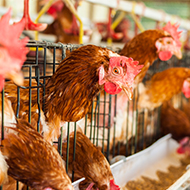BVNA launches new guidance on delegating to RVNs
“RVNs are highly skilled and trained professionals” – Lyndsay Hughes.
The British Veterinary Nursing Association (BVNA) has published new guidance on delegating Schedule 3 tasks to veterinary nurses.
Although the organisation wants to see reform of the Veterinary Surgeons Act 1966 in the long-term, BVNA believes that veterinary nurses can currently be better utilised under existing legislation.
The guidance also reflects the opportunities for veterinary nurses to take on additional clinical responsibilities identified by the Royal College of Veterinary Surgeons in its review of how ‘under care’ is interpreted.
It is hoped that the new resources will improve the confidence of veterinary teams in understanding Schedule 3 and maximise the role played by RVNs. As well as supporting the workload of veterinary surgeons and improving efficiency, BVNA believes that this could also promote patient welfare and enhance job satisfaction.
BVNA is planning a series of activities and resources for next year to complement its new guidance, including interactive sessions at BVNA Congress in October 2025.
Lyndsay Hughes, BVNA president, said: “BVNA's position is clear - that reform of the outdated Veterinary Surgeons Act is urgently required. However, we are also aware that under this existing legislation, there are still missed opportunities to utilise RVNs to our full capability, often due to a lack of confidence and clarity in interpreting Schedule 3.
“RVNs are highly skilled and trained professionals. Full utilisation of our skillset means we can enhance the delivery of patient care, and do even more to contribute to the veterinary team and business. Importantly, this will also lead to a greater sense of fulfilment and job satisfaction in our roles.”
The full guidance can be read here.
Image © Shutterstock



 An Avian Influenza Prevention Zone (AIPZ) has been introduced across Wales.
An Avian Influenza Prevention Zone (AIPZ) has been introduced across Wales.